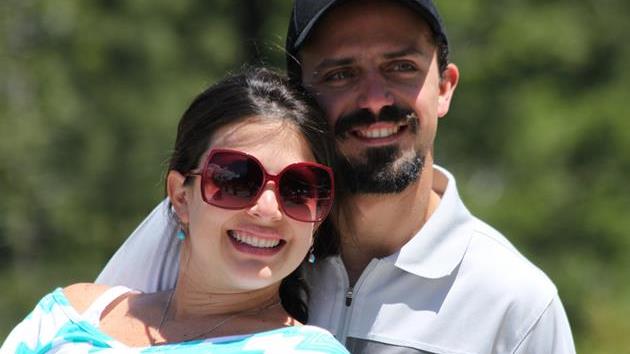Bailey, 36, and Kevin, 40, sat on my couch for their couples counseling session and shared their disappointment about their bickering and falling out of love.

Bailey put it like this, “Kevin works long hours and when we do see each other, we argue a lot. I just don’t feel loved by him anymore and feel sad about it.”
Kevin responds, “I’m at the end of my rope with Bailey’s criticism and negative evaluations about our relationship. We’ve only been married three years but have not even started talking about having kids because we argue so much.”
We’ve all been there: after meeting someone new, we’re in the thrall of excitement and possibility, our day to day thoughts consumed by the possibility of the blossoming relationship. But after the glow of the honeymoon period has waned, many couples find it difficult to nurture and communicate their feelings for each other.
It’s natural to believe that the fact that the intensity and infatuation have diminished is a sure sign that you’re falling out of love, or no longer in love. But the trap of overreacting to evolving relationship dynamics is problematic. It’s possible to renew your fondness for each other with a conscious approach to maintaining the love as the foundation of your partnership.
In a new article on Psychology Today’s website, Dr. Lisa Firestone explores the ways in which expressing love in ways that are well received by your spouse can help cement a relationship. Dr. Firestone draws on research and real world experience to support her understanding that “love can feel like a natural state we either experience or don’t, [but] we have much more say in it than we may think.”
Dr. Firestone points out that “the more we express love, the more we ignite it in our partner and cultivate it in ourselves.” But the ways in which we express love go a long way toward making our partner feel that love, and keeping the passion in a relationship alive.
Being aware of how we show love and how we want to receive love in return are at the heart of Dr. Firestone’s philosophy. She notes that “it’s common and fairly instinctual to give love how we would feel it.”
For some people, that means showering their partner with cards and gifts, expressing lots of affection, and frequently saying ‘I love you.’ For others, love is something more low-key, a quiet appreciation of the other person wherein you give them space to do their own thing.” Indeed, we all express and experience love differently, and Dr. Firestone provides a roadmap for encouraging a conscious approach in a partnership.
Dr. Firestone breaks it down into five tenets, each of which contributes to a healthier and happier expression and acceptance of love. First, she counsels couples to listen to what their partner is saying, writing that “paying attention to what our partner says sounds like the most obvious advice we’ll ever hear, but it’s something we have to remind ourselves to keep doing. Make a mental note of when they mention something that matters to them or something that excites them.”
Next, when listening to our partner, we should “pay attention to how they express their feelings.” Distinct from the concept of simply listening, the key concept here is that realize that “in addition to hearing what they vocalize, we should always try to notice what lights our partner up” because “this awareness helps us truly know our partners and understand the things that make them feel seen and loved.”
Dr. Firestone further advises that people “check in with your partner (and yourself).” She puts it simply, observing that “none of us are mind readers, and we can’t be expected to intuit what another person wants and needs at all times. It’s more than okay to ask questions and encourage our partners to let us know where they’re at and what they need from us.”
This practice naturally leads into Dr. Firestone’s two last suggestions — noticing how your partner expresses love, and “accepting your partner’s needs as different from your own.” Here, the same mindfulness should be applied to the notion that while you are committed to each other, you must recognize that you are different people with distinct ways of experiencing the world.
In summing up these principles, Dr. Firestone writes that “it’s okay for you to want more affection and for your partner to want more communication. It’s okay for one person to feel more loved by their partner cleaning the counter than saying, ‘I love you.’ Others might need the words. We each have different things to bring to the table and offer each other.”
In the end, the five tips for couples come with a consistent message: conscious communication is critical to maintaining the love that led to a relationship in the first place. We can all employ these tools to listen to, learn about, and love our partner, feeling confident that expressing and experiencing all a relationship has to offer is a two-way street.
Find Terry on Twitter, Facebook, and, movingpastdivorce.com. Terry’s award-winning book Daughters of Divorce: Overcome the Legacy of Your Parents’ Breakup and Enjoy a Happy, Long-Lasting Relationship is available on her website. Her new book The Remarriage Manual: How to Make Everything Work Better the Second Time Around was published by Sounds True on February 18, 2020.
I’d love to hear from you and answer your questions about relationships, divorce, marriage, and remarriage. Please ask a question here. Thanks! Terry












